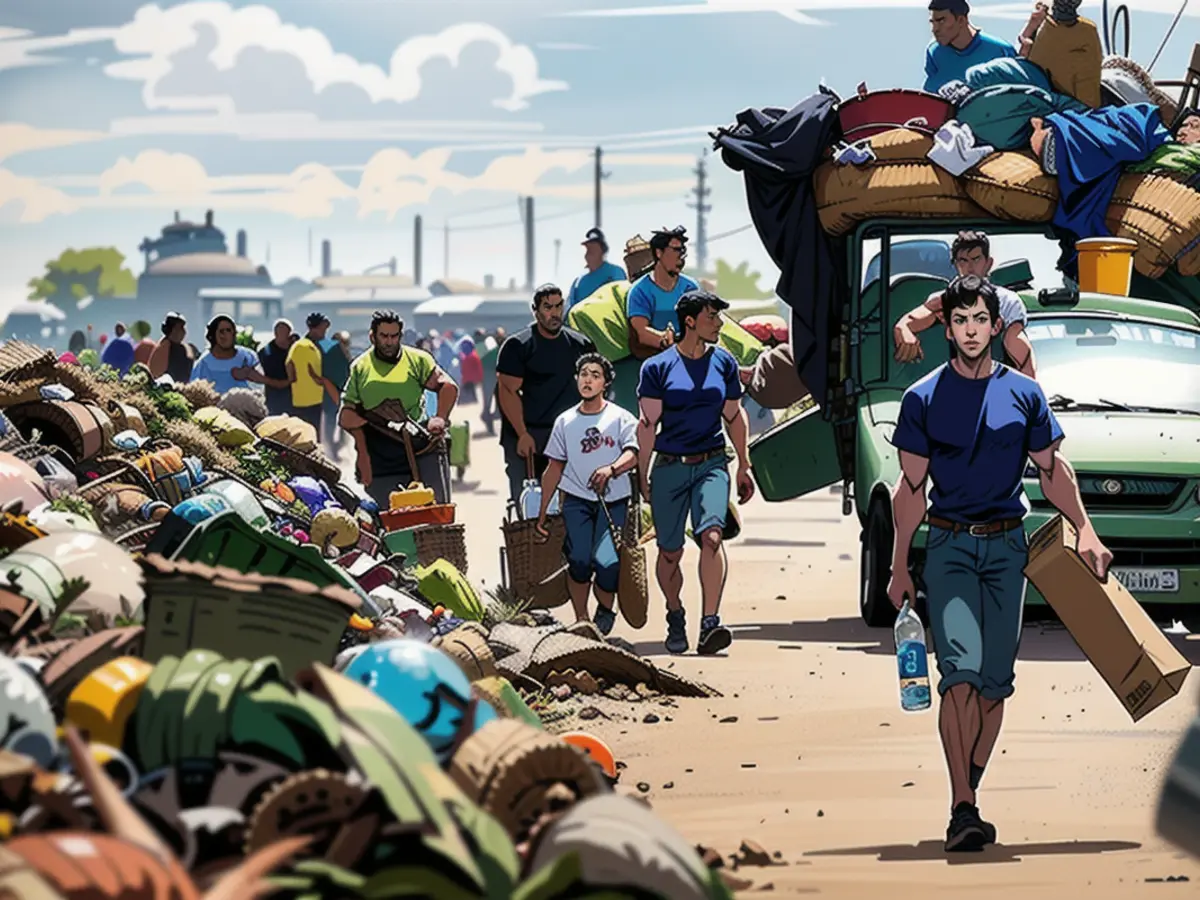Gaza Strip submerged in trash.
Heaps of trash are piling up and could lead to another health catastrophe in the Gaza Strip, warn United Nations aid organizations. If not taken care of, they could pollute the groundwater and agricultural land.
As the war in Gaza continues, the trash keep amassing in the narrow coastal region. UN Palestinian Relief Agency UNRWA states that garbage mounds are growing alongside many roads in Gaza. "Anywhere you look, you see a garbage dump," according to a statement by UNRWA on Date. Over a million people who were displaced from the city of Rafah are living in poor sanitation conditions, according to the UN Humanitarian Office OCHA.
The Gaza war, which has been ongoing for almost eight months, has only worsened the living conditions for the 2.2 million inhabitants of the Gaza Strip. Aid agencies say that 1.7 million people were forced out of their homes. Even before the war, there were issues with waste management in Gaza, with approximately 1,700 tons of trash being produced daily. Only two central landfills were available for these. The conflict between Israel and Palestine has further intensified the garbage problem.
The UN agencies fear severe health effects due to the garbage crisis for people in the Gaza Strip. There is also the possibility of contaminating agricultural land and groundwater. Rising temperatures in the region could make the situation worse.
The current Gaza conflict began when Hamas terrorists and other militant groups launched a brutal attack on Israeli border villages, resulting in over 1,200 casualties and over 300 hostages. The health authority controlled by the Islamist Hamas reported that more than 36,100 Palestinians had been killed by the Israeli army.
Read also:
- Year of climate records: extreme is the new normal
- Precautionary arrests show Islamist terror threat
- UN vote urges Israel to ceasefire
- SPD rules out budget resolution before the end of the year
The Israel-Palestine conflict, driven by ongoing hostilities, has exacerbated the garbage problem in the Gaza Strip, contributing to the growth of unsanitary dumping sites. Consequently, the United Nations Human Rights Council has expressed concern about potential health hazards and contamination of agricultural land and groundwater due to the worsening garbage crisis in the Gaza Strip.
Source:








